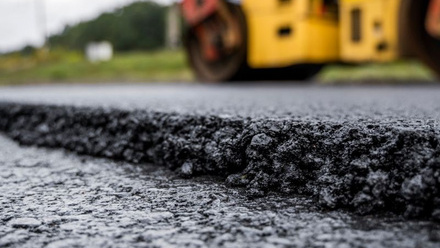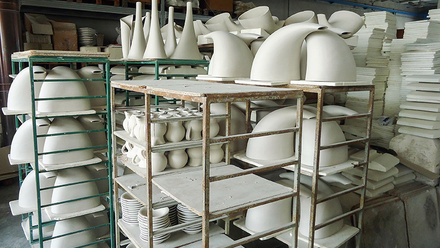Firing up aerospace manufacturing
Five aerospace projects are benefiting from nearly £90 mln investment to boost aerospace manufacturing in the UK.

The government-industry funding for the five projects through the Aerospace Technology Institute Programme aims to improve manufacturing within the aerospace industry, developing technology to make production lines quicker, more efficient, and more cost-effective.
A particular focus of the project proposals is on creating lightweight materials and parts that will reduce fuel use and which can be adopted for future hybrid and electric aircraft.
Details of the projects receiving funding -
- GKN Aerospace-led ASCEND (Aerospace and Automotive Supply Chain Enabled Development), Bristol.
£39.6m investment over three years - £19.6m government grant, £20m from industry.
The consortium behind ASCEND aims to develop innovative technologies, processes, and tools for the high-rate manufacture of lightweight composites for sustainable aircraft, cars and future mobility. The project will focus on increasing automation and skills to support the reduction of carbon emissions across these industries. ASCEND will help support the rapid growth in the low-emissions aerospace and automotive sectors, as hybrid and electric aircraft and new mobility concepts become more mainstream. The project will keep the UK at the forefront of this technology development and ensure it remains competitive in the global market.
If successful, the project could help secure 729 design and manufacturing jobs by 2033/34, with the majority based in Bristol and Dorset. - Renishaw-led LAMDA (Large Scale Additive Manufacturing for Defence and Aerospace), Gloucestershire.
£26.4m investment over four years - £13.2m government grant, matched by industry.
This project aims to develop a 3D metal printing machine which can be used to build larger aerospace components and mass produce smaller parts. This will reduce costs by delivering higher production rates. By exploiting superior material properties and innovative design, this will enable the manufacturing of smaller, lighter components, contributing towards net zero aviation.
If successful, the project could create or secure a peak of 240 design and manufacturing jobs in Gloucestershire, Wales, Blackburn, Bristol, Coventry, and Poole. - Airbus-led Smarter Testing, Filton, Gloucestershire.
£10.6m investment over three years – £5.3m government grant, matched by industry.
The Smarter Testing project aims to develop a novel test and certification process for aeronautical structures, which will combine virtual and physical tests to provide a step reduction in development lead-time and costs. The partners intend to use this opportunity to build a ‘Centre of Excellence’ for Smarter Testing in the UK. This will strongly rely on the expertise and skills developed within this project by the industrial partners and an extended support network of academic and research organisations.
If successful, this project could help to secure a peak of 98 jobs across the consortium in 2029-30 in Filton, Gloucestershire, and elsewhere in the UK. -
Thales-led COREF (Connected Reconfigurable Factory), Crawley and Belfast.
£10.4m investment over three years – £5.2m government grant, matched by industry. This project will focus on Industry 4.0 (‘smart’) tools & processes for low-volume, high-complexity manufacturing, creating two open-access, digitally-connected innovation laboratories. These will enable companies to increase the productivity and efficiency of their electronic systems design and assembly processes, while reducing costs. The Crawley laboratory will concentrate on digital innovation, while the laboratory in Belfast will concentrate on manufacturing. These facilities will be accessible to the supply chain and the public through partner invitation. COREF will create or safeguard 25 research and development jobs throughout the life of the project and up to 18 manufacturing-related jobs post-project. These will be spread across the UK but concentrated around Crawley and Belfast. -
Q5D-led LiveWire, Portishead, North Somerset
£1.7m investment over three years – £0.8m government grant, £0.9m from industry.
Wiring in aircraft, cars and many consumer electrical goods is done by hand. It is an expensive and laborious process that is prone to errors that can cause failures and fires. The aim of this project is to automate this complex process to reduce or remove the manual handling required. Doing this will create lighter more efficient wiring for higher performance, eventually at a lower cost. Automation will provide safety improvements via repeatability and increased design analysis.
If successful, the project could help to secure over 300 jobs in R&D, design and manufacturing by 2029/30 in the UK in the project team and wider supply chain.







